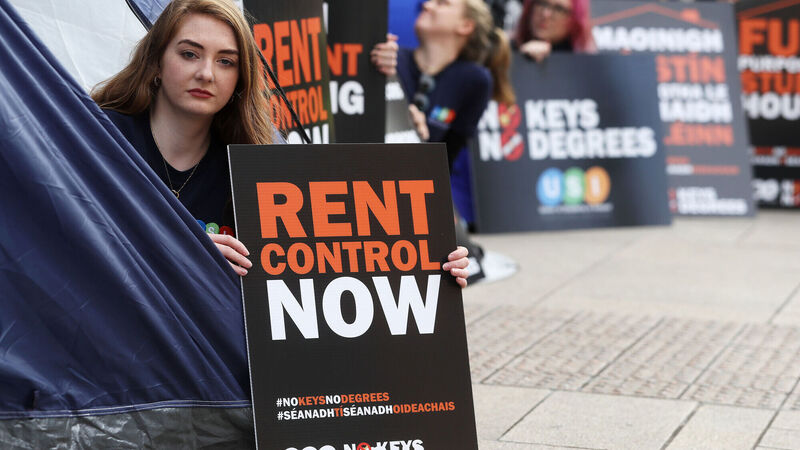Michael Moynihan: For so many of us, the words ‘housing’ and ‘crisis’ are inseparable

Clare Austick (left), President of Union of Students Ireland, and members of USI, outside Leinster House, Dublin, to take part in a “No keys, no degrees” protest and sleep out against a lack of accommodation for students. Picture: Brian Lawless/PA Wire












